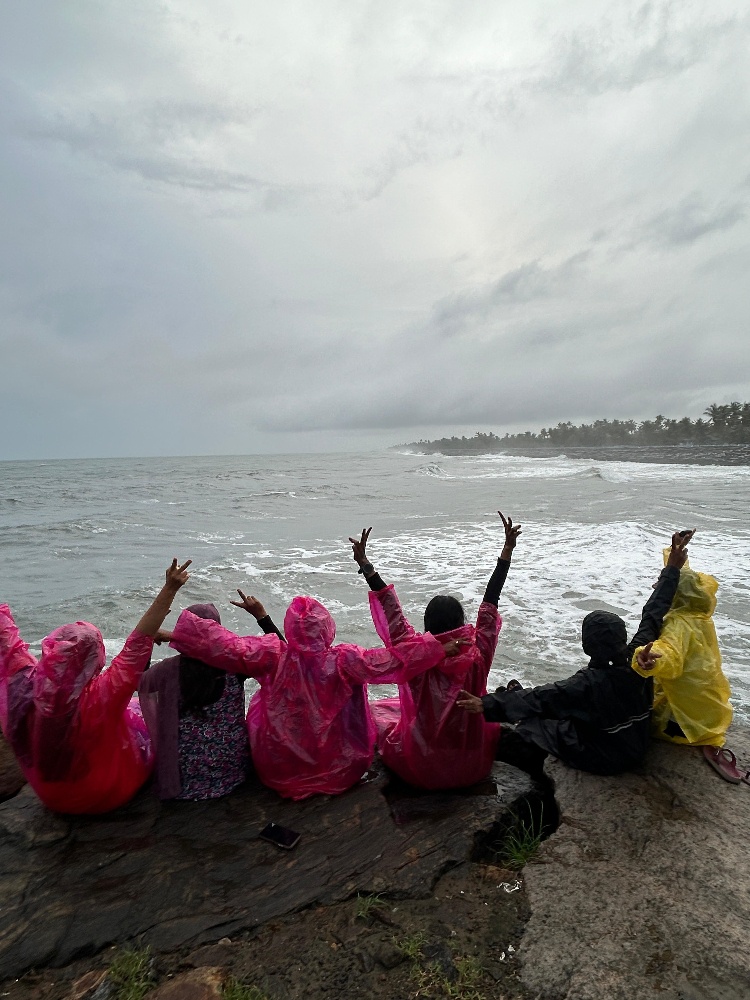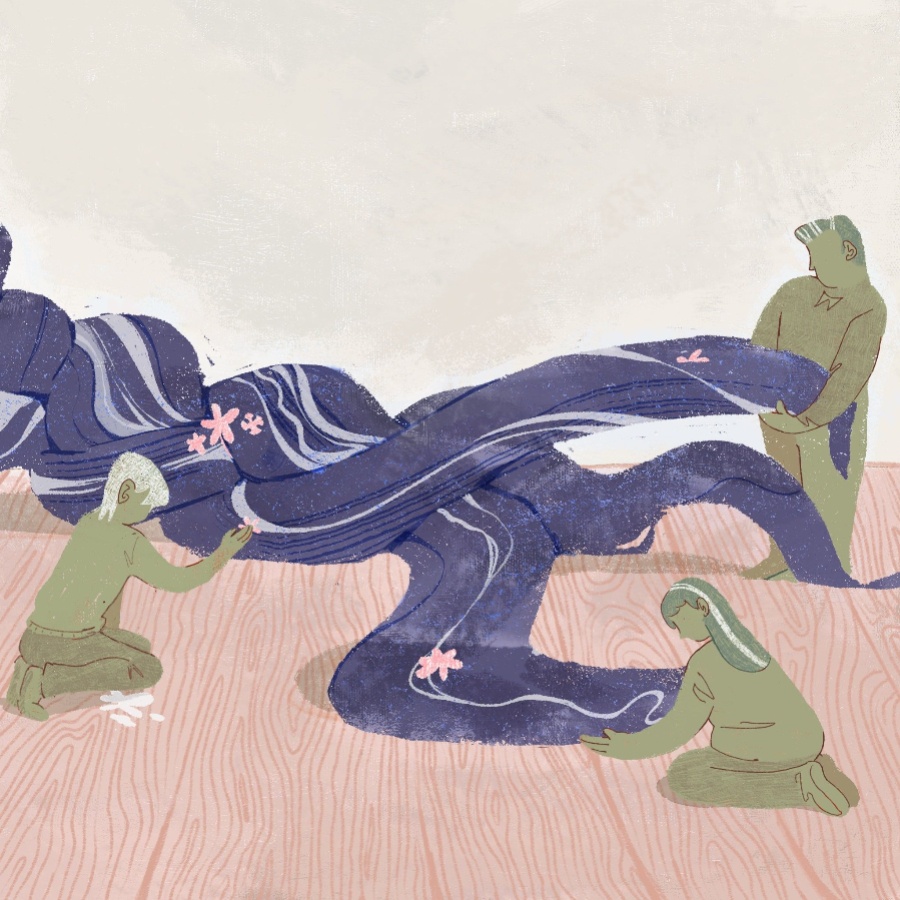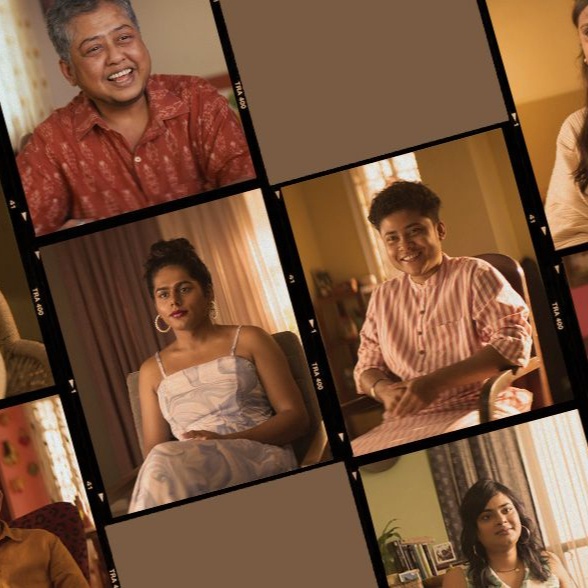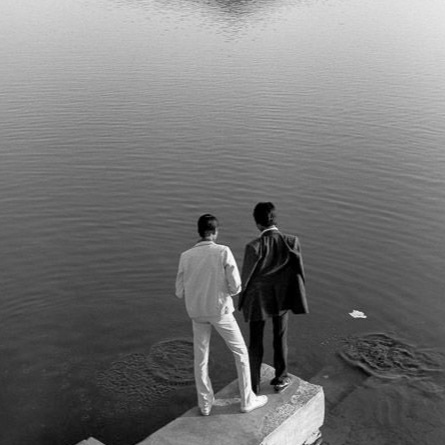Last month, 15 women from across Kerala, ensconced in raincoats, braved the rain to visit Chellanam Fishing Harbour in Ernakulam. Singing, laughing and flashing V-signs—to onlookers, they might have looked like a close-knit group of friends. In truth, the women barely knew each other. They were part of a ‘divorcee camp’ organised by Calicut-based content creator Rafia Afi under her new initiative, Break Free Stories, for women who are divorced, separated or widowed.
But this was far from a sombre affair—the strangers quickly turned into steadfast comrades and the stories flowed freely.
A space for healing
The first divorcee camp was a two-day trip in May to rain-soaked Vagamon in Kerala’s Idukki district. Seventeen women boarded a KSRTC bus from Ernakulam to the hill station, where they were to stay in camping tents nestled in a misty tea estate. The bus travelled approximately 102 km, but for some women—alone for the first time without socially sanctioned travel companions like parents, husbands or children—it felt like they were moving ahead in more ways than one.
One of the participants was Sofiya*. The Thrissur resident was married off at age 17 because her parents worried that her ‘dark complexion’ would dim her marriage prospects. After a long, rocky marriage, she decided to file for divorce in 2023.
Sofiya describes herself as someone who loved to read, talk and burst into spontaneous laughter, but the marriage had stripped her of these traits. “After my marriage ended, I couldn’t eat, sleep, bathe or go for work,” says Sofiya, whose doctor prescribed anti-depressants for six months. Post-separation, she avoided attending family events fearing snide remarks about how ‘happy’ she looked and learned to suppress her smiles.
“The camp was a non-judgemental space where there were no restrictions,” she says. “We all introduced ourselves and became good friends. One girl was a really good dancer, so she taught us a few steps and we all danced together, including a woman who was a grandmother. It reminded me of my school trips, and I was so happy after 18 years.”
At such camps, the women bond over good food, fireside chats, games like antakshari and dumb charades, treks to local spots, and sessions with a more therapeutic slant where the attendees blindfold themselves before sharing their personal stories. “I became very good friends with a girl from Kannur and we still keep in touch,” says Sofiya, adding that the camp cost her ₹2,500.
A sisterhood movement
Like the rest of the country, the south of India too is not exactly immune to the ‘log kya kahenge?’ sentiment.
Rafia Afi obtained a divorce last year, and her close family and friends were supportive of her decision. It’s a rare privilege in Kerala, which can be both refreshingly progressive and depressingly patriarchal. When acquaintances asked her about her marriage, she would candidly reply that she was divorced. “And they would always say ‘ayyo’,” she says, annoyed by their use of an expression that’s typically used to convey surprise, sympathy or shock. “They don’t have to feel sorry for me as it was my decision.”
As someone who was lucky to have strong female friendships, Afi believed in the power of sisterhood to heal broken hearts and, thus, decided to launch a ‘divorce healing camp’. In May, she announced the launch of Break Free Stories on Instagram. “I received more than 600 enquiries,” she beams.
From healing to empowerment
The second camp, which was held in Alappuzha on June 14 and 15, was packed with activities like boating, fishing, visits to local tourist spots, and chat sessions.
Musician and lawyer Zaki J, who’s also Afi’s friend, attended both camps—first as the person in charge of the entertainment and then as a legal advisor. “In the first camp, I met women who used to be in abusive marriages and were fighting their divorce cases in court—one of them had been fighting for six years,” she says. “Most of the women didn’t know about divorce laws, and I felt like they could easily win their cases with some guidance.” So, she spoke to Afi and volunteered to give a talk on the topic in Alappuzha. Zaki still keeps in touch with about five women from the camp and gives them legal advice on an informal basis, whenever they seek it.
Zaki’s own experience played a role in motivating her to work with Break Free Stories. She lost her mother to domestic violence, and the fact that her father was granted bail almost immediately was what pushed her to study Law. “I am very happy to see these women take the step that my mother didn’t take,” she adds.
The camps have been attended by women from all walks of life—from PhD holders to nurses and businesswomen. The third camp, which concluded last week in Calicut, saw women from neighbouring states like Telangana. With the next one scheduled for July 19 and 20, Afi hopes to reach out to women from other states like Karnataka and Tamil Nadu. Future plans aim to support women’s entrepreneurial ideas, include single mothers, and also take the camp to countries like the UAE, where an overwhelming number of women have reached out to her. “I want do something for the community by letting people know that divorce is a comma, not a full-stop,” adds Afi.
*Full name withheld on request






